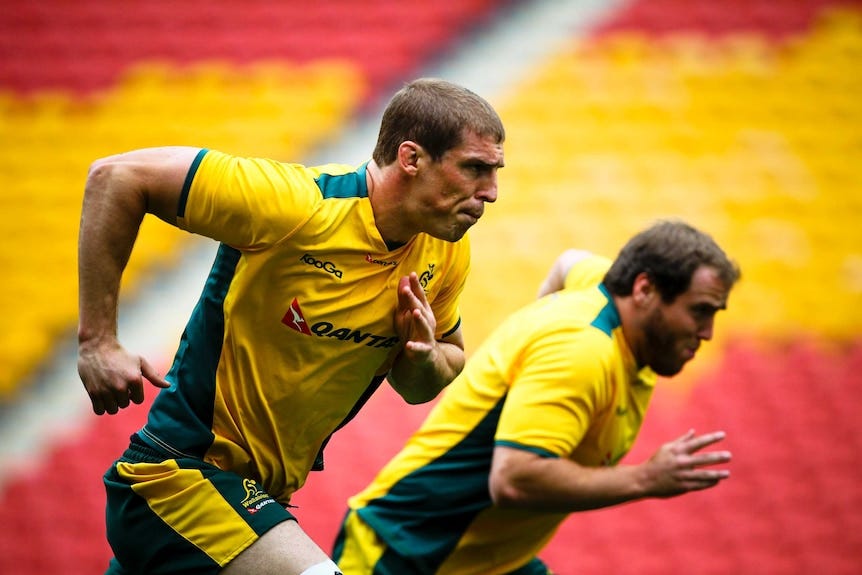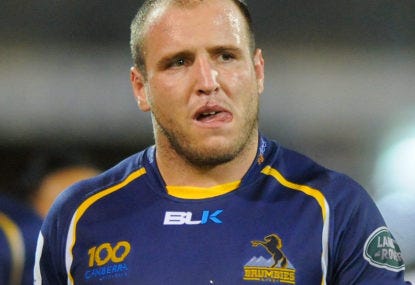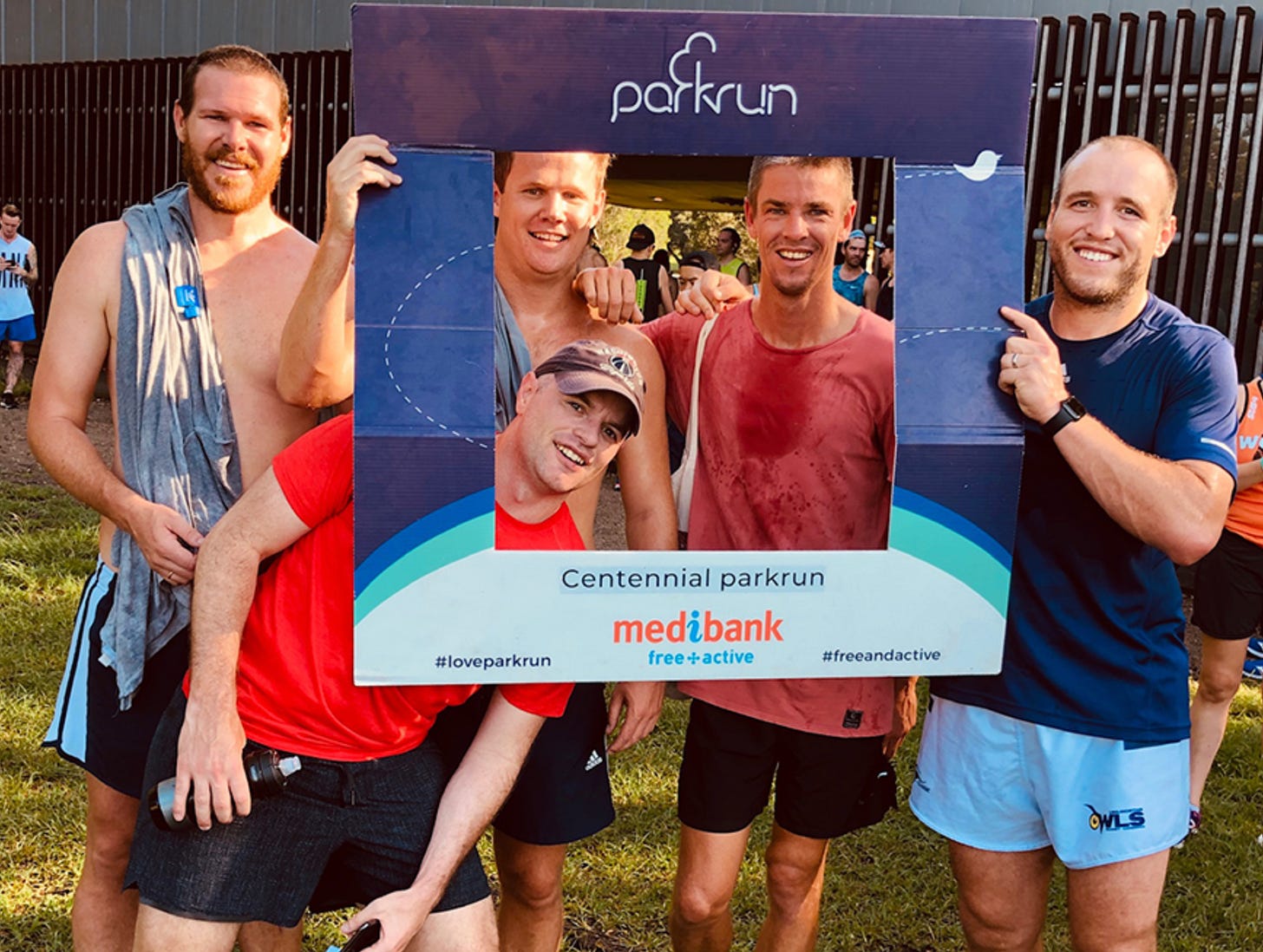Why is retiring hard?
Tough times don't last, and the best thing you can do today is to exercise with mates or ask for help.
I started this blog to write about life in retirement from footy, and to give an insight into the challenges sportsmen and women face when the full-time whistle is blown on their sporting careers.
Challenges can vary from player to player, but there are some common obstacles anyone retiring young faces.
Whether it be retiring from sport, the military, or just figuring out what you want to do next in life, the transition is tough, and I didn’t decide to retire until the day before I announced it.
Maybe I was in denial, but a few things happened that made my decision to retire a straightforward one. And while I’ll keep saying the word “retiring”, what I really mean is “transitioning to what’s next”.
I am not a psychologist and if you’re struggling, please go for a walk with a mate, or seek professional help.
BRAIN CHEMICALS
I love YouTube and can spend days going down rabbit holes, and while I was playing, my favourite rabbit hole was about “chemicals in the brain” and how they make us tick.
I’d also read every article about retired athletes suffering from depression, and when former teammate Dan Vickerman took his own life, I thought “Maybe the same could happen to me?”
I’d been struggling mentally since our loss to the British and Irish Lions, but after watching hours of videos about the role these chemicals (Endorphins and Serotonin) play on how we think and feel, I became confident that I would be ok when the time came to retire.
I was fascinated as I use to think that describing depression as a “chemical imbalance in the brain” was just a load of sooky nonsense.
But boy could I have not been more wrong!
SUICIDE
While I didn’t play a huge amount of footy with Big V, the two of us bonded during the 2011 Rugby World Cup as part of the Wallabies engine room.
Vicks had only recently recovered from a badly broken leg, similar to a break I had 6 years earlier that required metal poles to be inserted inside our shin bone, and he regularly asked me about my recovery.
I was lucky that I’d suffered the injury early in my career and made a full recovery once the pole was removed. But Big V courageously powered on during that World Cup with the pole inside his leg, causing him tremendous pain.
I’d only played one season with the pole in my leg, but I remember the pain being so intense after training sessions, that I’d have to crawl up the stairs to make it to my bed, and could understand the pain he was in.
But I last spoke to him after a Brumbies/Waratahs match when he stormed into the Dock for a player reunion, and I wish I’d said something helpful.
With the benefit of hindsight, there were some warning signs that night and it wasn’t the first time I’d been unable to help him, as a conversation we had after our semi-final loss to the All Blacks is one I’ll never forget.
While drowning our sorrows on my hotel room balcony, Vicks turned to me and said:
“I can’t do this anymore”.
I didn’t know what to say and I remember thinking “mate… you played unbelievable” as he’d been one of our best.
I’ll never know exactly what he was referring to, and I thought he was talking about the pressure of representing your country on the world stage.
A pressure I know I struggled to cope with.
But now I think he was hinting at the agony of playing with such a painful injury, and that he would soon hang up his boots, and I hope that by sharing this someone may be able to help someone they know.
Someone who might be struggling, as I believe this difficult topic isn’t talked about enough.
Suicide has been the biggest killer of people I know. It’s robbed my Nana of her brother, my mother-in-law of her father, and me of friends, and to hear of recent suicides during the lockdown is heartbreaking (including one recently of a doctor in the toilets of Canberra hospital).
I don’t think Big V ever fully recovered from his injury, and to think of how he must have been feeling in the weeks before his death is tough.
I have had some rough patches, and the first one was when I had the double whammy of retirement and the death of my grandmother in the space of a few weeks.
My brain became foggy and I had no energy, as the combination of coming to terms with a loved one’s passing and the huge shift to my weekly routine, knocked me for six.
After 10 years of being told what to do, I was now responsible for my daily schedule and never fully appreciated just how important routine is for feeling good.
But what got me through that tough patch was exercise… and my mates.
EXERCISE WITH MATES
YouTube helped me realise that in order to get my daily dose of Endorphins and Serotonin, all I had to do was to turn up to training and do what I was told.
In other words, professional Rugby is just running around all day with your mates, while getting drenched in happy brain chemicals!
And it’s no wonder players feel sad when that stops and may cause them to turn to less healthy things to make them feel better.
But it doesn't have to be the case.
After learning how important these chemicals are to feeling good, and how to get them, I realised that all I had to do was make an effort to schedule time for exercise with mates, because when I tried to exercise on my own… it very rarely happened.
Every year, a few weeks into my off-season holiday I would start feeling off, which forced me to return to training a week earlier than required, misleading people to think I was dedicated.
But the truth was I just needed to get back exercising with my mates.
Getting to spend time with friends is the carrot I need to get my shoes on and my arse out the door, and I still struggle to get a sweat up if I have to do it alone.
Whether it be with the Tuesday Trotters, Running 4 Resilience, or parkrun, I’ve yet to find a better way to start the day than a bit of exercise with good people, followed by a warm brew.
A big dose of happy brain chemicals and caffeine! The perfect morning cocktail!
And while that delicious morning cocktail doesn’t solve all my problems… it gives me the energy (and gets me in the right frame of mind) to keep working through them.
And long may it continue and thanks for reading!
I hope you found this post helpful and if you think it could help anyone else, please give it a share by clicking the button below.
Cheers!
Lifeline - 13 11 14





Hi Ben. Have some empathy as last month I broke my femur and now recovering with a rod and screw reconnecting to my hip. The different pain you experience and the frustrations of limitations placed on you while you recover are immense. I have followed some of your post rugby exploits including the boxing. I believe you are making a difference, not just for yourself and your family, but also for the wider community and rugby world. Many congratulations on the example you are setting for others. 🌸
Thank you.
For a refreshing perspective and accurate portrayal of what happens when you leave the structure and routines. Many of my mates in military experience these exact emotions.
A lot have always underestimated the professionalism they hold in their own field. Years of this conditioning to strive for perfection impacts life on families and work colleagues when you are on the outside. We have been conditioned to expect perfection and are always evaluated on improving our output.
When this is combined with working as a part of a high performance team under high pressure, for good or bad you become conditioned to that environment. When you leave the loss of that team is both daunting and real.
This is a great read and it will help people see the light on the other side.
All my comments here are my own personal opinion and are separate from my employer.